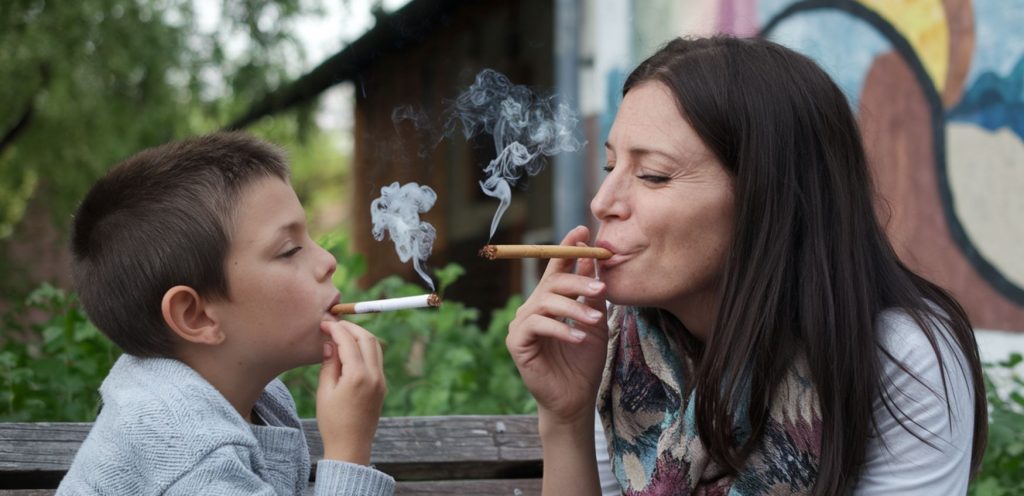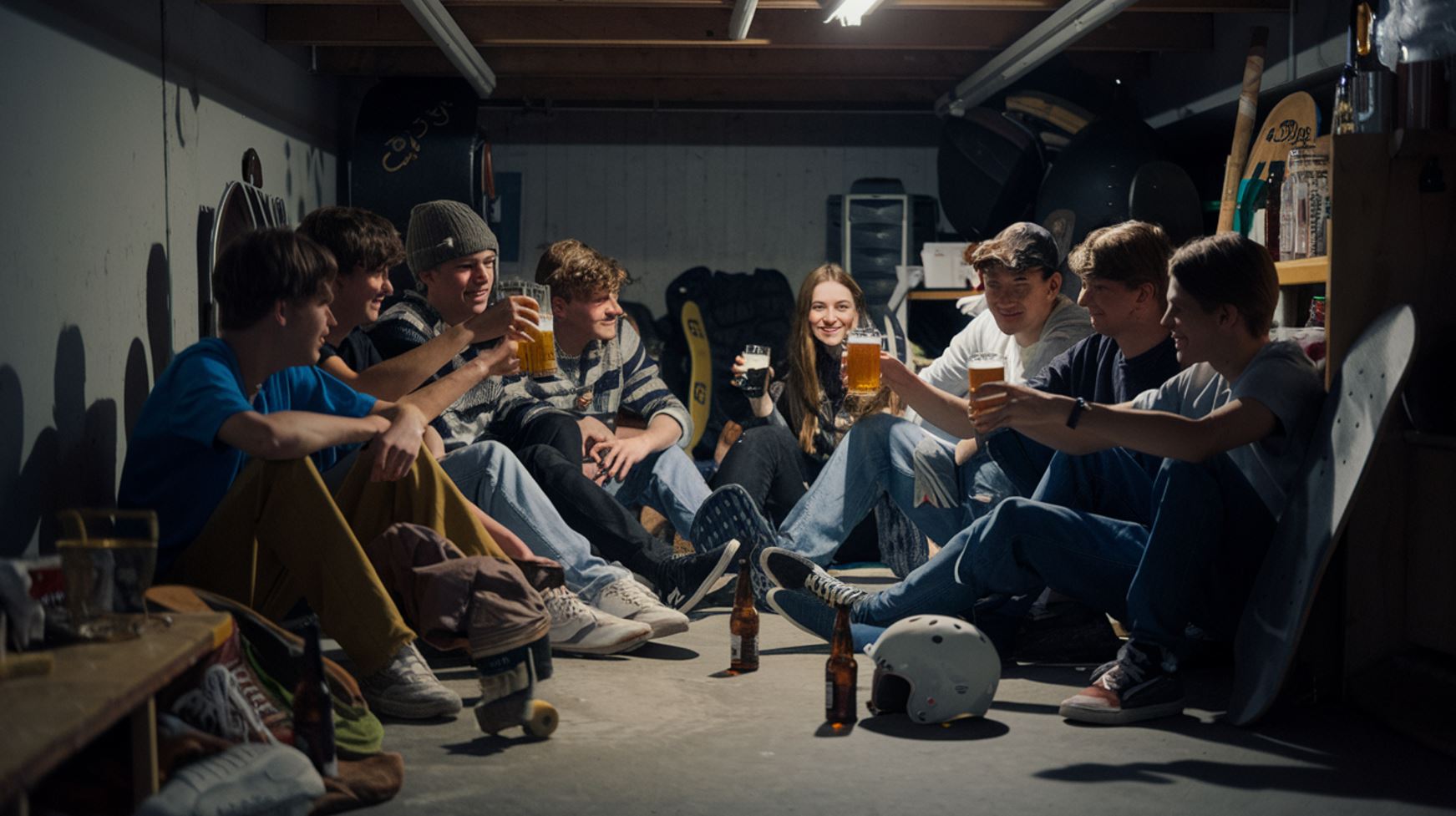What Is Contributing to the Delinquency of a Minor?
If you face a Contributing to the Delinquency of a Minor charge, it is vital that you understand the possible penalties, defenses, and strategies when seeking dismissal of the case.

What You Need to Know About Contributing to the Delinquency of a Minor
Under MCL 750.145, contributing to the delinquency of a minor means encouraging, enabling, or failing to prevent a minor from engaging in illegal, immoral, or harmful behavior. Actions that qualify may include the following:
- causing or allowing a minor to break the law;
- providing a minor drugs or alcohol;
- allowing a minor to skip school or fail to meet educational obligations;
- allowing a child to view or possess pornography; or
- engage in behavior that risks a minor’s safety or affects a minor’s moral character.
A conviction for this misdemeanor can result in up to 90 days in jail, a $500 fine, or both. Although the penalties may seem less severe than a felony, the long-term consequences can significantly affect your reputation, future, and family life.
At LEWIS & DICKSTEIN, P.L.L.C., we defend individuals accused of contributing to the delinquency of a minor. Our experienced criminal defense attorneys will help minimize or eliminate the penalties you face.
How Does Michigan Law Define Contributing to the Delinquency of a Minor?
In order to prove that a defendant is guilty of contributing to the delinquency of a minor, the law requires the prosecutor to prove the following:
- The Defendant’s Actions: The prosecution must show that the defendant’s actions directly contributed to or encouraged the minor’s delinquent behavior.
- Causation: A clear link between the defendant’s actions and the minor’s behavior must exist.
- The Age of the Minor: The minor must be under 17 years old.
Michigan law applies this statute broadly, so even minor lapses in judgment—such as hosting a party where minors drink alcohol—can lead to charges.
Legal Consequences of Contributing to Minor Delinquency
Explore the various actions that may contribute to a minor’s delinquent behavior and their legal implications. Click on the buttons below to read more about each violation.
Providing Alcohol or Drugs to Minors: Allowing or supplying alcohol or drugs to a minor, even in social situations, violates the law. This includes any form of intentional or negligent act that results in a minor being exposed to or using controlled substances. Consequences for such actions can be severe, including criminal charges, fines, and potential imprisonment.
Permitting or Encouraging Truancy: Failing to ensure a child attends school or encouraging frequent absences constitutes a violation. Truancy not only harms a minor’s education but also exposes them to further risky behavior. Legal consequences may include fines, legal action, and intervention by child welfare services.
Involving Minors in Illegal Activities: Asking a minor to help with theft, vandalism, or other crimes—even if perceived as minor—leads to charges. Involvement in illegal activities by a minor can have long-lasting consequences, both legally and socially. Adults who encourage or facilitate these behaviors face criminal charges and possible imprisonment.
Neglecting Proper Supervision: Ignoring a minor’s risky or unlawful behavior while under your care qualifies as contributing to delinquency. It’s essential to provide guidance, oversight, and intervention when necessary to ensure a minor’s well-being and prevent harmful actions. Failure to do so can result in legal consequences.
Pressuring a Minor Into Inappropriate Behavior: Coercing or encouraging a minor to engage in immoral or harmful actions can result in charges. Pressuring minors to participate in illegal or unethical behavior can be damaging to their development and may result in criminal prosecution for the responsible adult.

Real-World Example: Allowing a Minor to Consume Alcohol
Consider Sarah, a 25-year-old who is hosting a party where teenagers are present. She does not provide alcohol directly but permits the minors to drink unsupervised. After the party, one of the teens drives under the influence and gets into an accident. Police discover the party and Sarah’s inaction. Sarah faces charges for contributing to the delinquency of a minor because she allowed illegal behavior without intervention. This example highlights how indirect actions—or failing to act—can lead to serious legal consequences.
How to Defend Against Contributing to the Delinquency of a Minor
A skilled criminal defense attorney can build a strong defense against these charges. Here are common strategies we use:
Disproving Intent
The prosecution must prove you intended to encourage delinquent behavior. If the actions were accidental or misinterpreted, we can argue this point.
Mistake of Fact
If you did not know the individual was a minor (e.g., they lied about their age), this fact can serve as a defense.
Challenging Causation
If there is no clear link between your actions and the minor’s behavior, we will argue that the prosecution has not met its burden of proof.
Exposing Constitutional Violations
Any constitutional rights violations during the investigation or arrest can render evidence inadmissible, potentially leading to dismissal.

Consequences of a Conviction
Any criminal conviction, including contributing to the delinquency of a minor, has both immediate and direct consequences as well as long-term and collateral consequences. Direct consequences include jail, probation, fines, etc. Indirect or collateral consequences include damaged reputation, loss of firearm rights, difficulty obtaining or advancing in employment, loss of a professional license, and more.
For the Accused:
- Up to 90 days in jail and/or a $500 fine.
- A criminal record that could impact your ability to find employment or housing.
- Potential legal action from Child Protective Services (CPS), who could determine that they need to evaluate your parenting and/or living environment.
- A tarnished reputation in your community.
For Families:
- Legal proceedings can place additional emotional and financial strain on the family.
- If CPS becomes involved, you may face custody-related challenges.
Why Hiring an Experienced Attorney Is Essential
The stakes in these cases are high, and the consequences can affect every aspect of your life. At LEWIS & DICKSTEIN, P.L.L.C., we leverage decades of experience to protect your rights and future. Our criminal defense team provides comprehensive support by:
- Evaluating the Prosecution’s Evidence: We carefully examine every detail to identify inconsistencies or weaknesses.
- Challenging Intent: Our attorneys focus on disproving that your actions were deliberate or harmful.
- Negotiating for Reduced Charges: In many cases, we successfully pursue alternative resolutions with the prosecutor and judge, such as dismissal, probation, or diversion programs.
- Guiding You Through the Process: Our attorneys ensure that you understand your case at every stage and that your rights remain protected.
We recognize the stress and fear that accompany these charges. You do not have to face this alone!

Contact Attorneys Who Will Fight for YOU
At LEWIS & DICKSTEIN, P.L.L.C., we know how to fight for our clients. With our proven legal strategy, we can often persuade the prosecutor to reduce or dismiss a Contributing to the Delinquency of a Minor charge. Our attorneys work tirelessly to protect your future, reputation, and family. Call us today for a free consultation. We will contact you promptly to discuss how we can help. Let us fight for your rights and protect your future.
Call us today at (248) 263-6800 for a free consultation or complete an online Request for Assistance Form. We will contact you promptly and find a way to help you.













